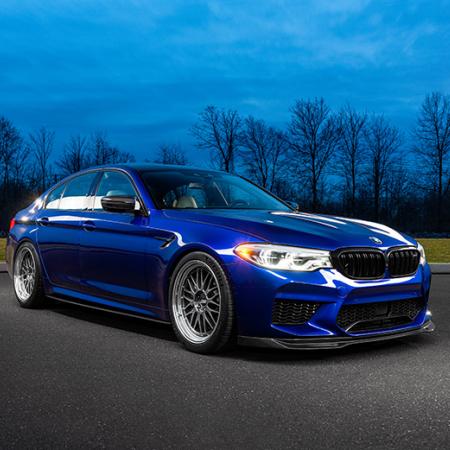BMW electric vehicles (EV) are here to stay. The company's only pure electric car—the BMW i3—will soon be joined by an all-electric Mini and an all-electric BMW X3 and eventually, an i5 and the iNext by 2021. Add in all the plug-in electric hybrids BMW currently sells with more to follow, and it's clear that electricity will power more and more BMW Group vehicles. But electric doesn't necessarily mean batteries. Batteries are heavy, take a long time to recharge, and probably won't ever offer the kind of range and fast refueling times that internal combustion engines enjoy. But there is another way to power the electric vehicles that will continue to be a key component of BMW's future mobility strategy—hydrogen.
Hydrogen-powered electric fuel cells can provide electric cars with greater range and faster fill-ups—and they weigh less than batteries. BMW's research into hydrogen fuel cells is advanced, and hydrogen fuel may be nearing feasibility—if only there were an adequate hydrogen infrastructure to make the use of such vehicles practical and easy.
That is why the BMW Group's Designworks subsidiary and Shell have been working to develop an innovative hydrogen dispenser that will make it quite easy to refuel hydrogen-powered vehicles. The partners launched their new hydrogen pump design at the Hannover trade fair last week.
Designworks and Shell figured that a new fuel needs a new dispenser, not an adaptation of traditional pump handles used for conventional fuels. Their idea was an "I" shaped design that is clean and simple, with all the mechanical parts concealed and out of the way.
The pumping unit provides a lighted guidance system when the vehicle approaches, a large information screen on the unit's face so that the driver can track refueling progress and even call up maps and other trip information, and a graphic display on the innovative dispenser nozzle.
The refueling nozzle itself has a new mounting mechanism for a more intuitive way of hooking up to the vehicle's refueling port. It even guides the user through the proper procedures.
Oliver Bishop, Hydrogen General Manager at Shell said, “Customers are at the heart of what we do. We are pleased to have collaborated with Designworks in the development of a new hydrogen dispenser that will allow us to provide customers an improved hydrogen experience. It will not only make refueling seamless, it will also help make hydrogen fuel an even more attractive option in the future”.
When hydrogen becomes a viable fuel alternative to batteries due to a greatly expanded and super-easy-to-use infrastructure, it will be the result of innovative thinking like this from Shell and the BMW Group's Designworks.—Scott Blazey
[Photos courtesy of BMW AG.]


















